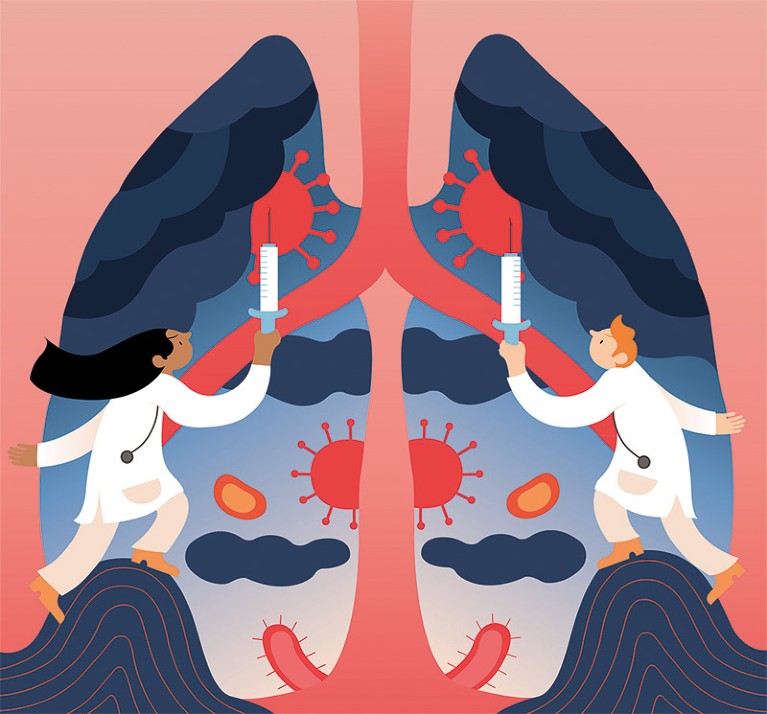Infection
RSV treatments are here: now the work begins
Illustration: Chiara Zarmati
As the COVID-19 pandemic ebbs, the resumption of social activity has led to a spike in respiratory syncytial virus (RSV). The virus usually causes a mild illness with nothing more than cold-like symptoms, but these lower respiratory tract infections can come with severe and devastating consequences for some children and elderly people. RSV is the most common cause of bronchiolitis in children under the age of two. Roughly one-quarter of people admitted to hospital with RSV will require intensive care — and 6.6% of those who are hospitalized will die.

Part of Nature Outlook: Respiratory syncytial virus
Fortunately, RSV’s resurgence has been met with a host of medical advances that mitigate the danger of this disease. A new antibody drug that protects infants during their first RSV season was approved by the US Food and Drug Administration in July. This followed the first ever RSV vaccine for people aged 60 years and over, which was approved in May, and will help to fight the growing burden of RSV infections in this age group. A vaccine for pregnant people to protect their unborn children was also approved in August. And more innovations are on the horizon.
Yet, even as these developments engender optimism, substantial hurdles remain. Access to existing RSV interventions is already unequal, leaving people in low-income countries especially vulnerable. Without policies in place to ensure equity, these communities could be left exposed despite the recent progress.
Wide-scale surveillance of RSV — including where it is spreading, who it is infecting and how its genetic make-up is evolving — is woefully inadequate. This leaves public-health agencies in the dark when making decisions about how best to deploy the latest drugs at their disposal.
Research also suggests that the effects of RSV might linger long after the initial infection has been cleared; studies are beginning to uncover links between RSV infections and respiratory problems in later life, such as wheezing and asthma. Other research is beginning to unpick how other pathogens in a host might collaborate or compete with RSV.
We are pleased to acknowledge the financial support of Moderna in producing this Outlook. As always, Nature retains sole responsibility for all editorial content.

